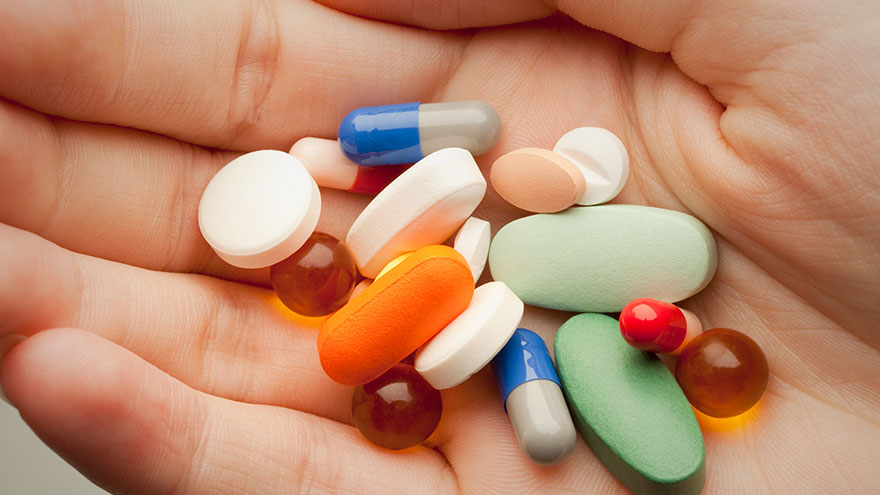Buscar
-
Clinical Research: Advancing Healthcare in Northern Nevada One Study at a Time
Did you know that the Renown Research Office has partnered with the University of Nevada, Reno School of Medicine Clinical Research Office to form the Integrated Clinical Research Office? This means we are able to provide more clinical research opportunities and expertise to our northern Nevada community than ever before. Over the past two years, we have significantly expanded our clinical trial offerings from 35 to 101 studies to meet the healthcare needs of our community members and keep care options local. Currently, we offer clinical research as a care opportunity in areas such as cardiology, pulmonology, endocrinology, oncology, pediatrics, neurology and immunizations. What is Clinical Research? Clinical research is simply medical research that involves human volunteers (participants). Research studies have to be reviewed and approved by ethics committees to ensure that the questions researchers want to answer are appropriate and that research participants are protected throughout the study. Often when we talk about clinical research, we are referring to a clinical trial. Clinical trials are a type of clinical research study that places research participants into groups to study the safety and effectiveness of new medications and devices on a specific health outcome. Clinical trials follow rigorous standards and must pass four phases of testing, where each phase works progressively to understand the correct dosing and effects in larger and more diverse groups of people. Why is Clinical Research Important? Did you know that all medications, diagnostic tests and medical devices prescribed and used today by physicians and health practitioners were once tested in clinical trials? Clinical research advances medical care by helping us understand how to prevent disease and to provide new and better treatments for a wide range of health conditions. At Renown Health, we know the importance of offering the latest opportunities in healthcare, especially when standard of care options have been exhausted. What Are Some Considerations for Participating in Clinical Research? Research volunteers are often drawn to participating in studies because they are interested in accessing the latest health care treatments and/or they want to contribute to scientific discovery. If you are interested in becoming a research volunteer, you should first make sure you fully understand what the study and researcher is asking you to do and consider whether you are comfortable with the study activities and commitments to time and travel such as for required study appointments. Remember, participating in a research study is completely voluntary. That means you choose whether to participate, and you can choose to stop participating in a research study at any time, for any reason. Where Can I Find More Information About Clinical Research? There are many resources you can access if you have questions or want to learn more about clinical research. Your healthcare provider can assist you in your healthcare journey by discussing care options and exploring if participating in a clinical trial may be right for you. The Nevada Division of Public and Behavioral Health recently launched their Clinical Trials Info for Nevadans webpage which provides information on finding clinical trials in Nevada, understanding the importance of diversity in clinical trials, and linked resources to learn more about clinical trials. The U.S. Department of Health and Human Services Office for Human Research Protections provides informational videos, questions to ask researchers prior to participating and information on regulations in place to protect research participants. Finally, at the Renown Research Office, we are always here to support your clinical research journey and can be reached at Renown-CRD@renown.org or 775-982-3646. At Renown Health, our goal is to make it easy for patients to access clinical research as a care opportunity where patients can access a variety of standard care treatment options for their health condition or choose to participate in a clinical trial. For more information about clinical trial opportunities available to you or to ask any questions, contact the Renown Research Office at Renown-CRD@renown.org or 775-982-3646.
Read More About Clinical Research: Advancing Healthcare in Northern Nevada One Study at a Time
-
Foods to Avoid When Taking Heart Medications
Did you know certain medications can interact with everyday food and drink? We asked VP of Pharmacy Services Adam Porath how to take these important medications safely. One in five Americans between the ages of 40 and 75 are currently taking a statin drug to reduce their cholesterol level or to prevent atherosclerosis (hardening of the arteries). Many others also take anticoagulants (blood thinners) to prevent blood clots from forming, which can increase the risk of stroke. Adam Porath, VP of Pharmacy Services at Renown Health, explains how to safely take these medications. What is a statin? A statin is a drug that can lower cholesterol by helping your body absorb cholesterol or by blocking a substance your body needs to make it. The American Heart Association cites a global study reporting the benefit of statins to help reduce heart attacks and strokes. Common statins include atorvastatin (Lipitor), pravastatin (Pravachol), rosuvastatin (Crestor) and simvastatin (Zocor). Which foods or drinks should be avoided while taking statin drugs? Grapefruit juice is the only food or drink that has a direct interaction with statins. Statins do not directly interact with any food but people taking statins should moderate their intake of saturated fats to help lower their LDL cholesterol and overall risk of cardiovascular disease. What is a blood thinning drug? Blood thinning drugs, such as warfarin, rivaroxaban (Xarelto), apixiban (Eliquis), dabigatran (Pradaxa) and edoxaban (Savaysa), are used to prevent stroke. Which foods or drugs should be avoided while taking blood thinning drugs? If taking warfarin, alcohol and cranberries (including juice) should be avoided. Patients taking warfarin should be aware of foods that contain Vitamin K (green leafy vegetables) and try to maintain a consistent diet of these foods. Warfarin interacts with many over the counter and prescription medications. Patients should consult a pharmacist when starting, stopping, or changing doses of any medication when taking warfarin. Also, patients taking any blood thinning medication should avoid over-the-counter pain relievers (i.e. aspirin, ibuprofen, etc.) How do I know whether to take my medication with food or not? Consulting with a pharmacist is the best resource to determine if a medication should be taken with or without food. In general, all statins and blood thinners can be taken with or without food. The only exception is Xarelto (rivaroxaban), which should be taken with the largest meal of the day If you are a Renown patient you can also review your prescriptions online, request a refill or ask a question via MyChart. With MyChart, you can access all your healthcare information securely 24/7.
Read More About Foods to Avoid When Taking Heart Medications
-
Managing Your Uncontrolled High Blood Pressure
Renown Health, the region's leading cardiology care provider, is offering a clinical trial for eligible patients struggling to control their high blood pressure. Nearly half of adults (119.9 million) in the United States have hypertension, or blood pressure that is higher than normal. Hypertension can put you at risk of other life-threatening disease, such as a heart attack or stroke. There are methods that cardiologists use to manage high blood pressure, but only 1 in 4 adults with hypertension (27.0 million) have their blood pressure under control.* Some patients with high blood pressure experience resistant hypertension, which does not respond well to multiple antihypertensive medications given at the same time. This means that there are many important opportunities for healthcare professionals to explore new ways to treat hypertension. At Renown Health, we lead the region in cardiology care with our technological expertise and patient-centered approach. That is why our cardiology team is partnering with the Renown Research Office to offer the RADIANCE Continued Access Protocol (RADIENCE CAP) clinical trial to eligible patients. RADIANCE CAP is a non-randomized study designed to allow for continued access to ultrasound renal denervation therapy via the Paradise System, and to allow for the on-going collection of safety and effectiveness data in patients with uncontrolled hypertension despite the prescription of antihypertensive medications. The body’s complex communication system between the brain, heart and kidneys can sometimes become overactive, increasing your blood pressure through messages in the nervous system. Renal denervation is a minimally-invasive procedure which reduces activity from the nerves in your kidneys to lower blood pressure. This is the third in a series of renal denervation clinical trials Renown Health has offered to patients with resistant hypertension over the last several years, with over 40 local participants. “All the participants that I have had the pleasure to work with on these studies are very excited and grateful to have this option for helping control their blood pressure” states Lisa English, Lead Clinical Research Coordinator for Cardiology studies at Renown Health. “I love getting to know each one of them and helping on their healthcare journey. We have an amazing team of providers and staff at Renown that go out of their way to make patients experiences positive and the studies successful.” Dr. Michael Bloch, Cardiologist and Principal Investigator for the RADIANCE CAP study at Renown Health’s Institute for Heart and Vascular Health adds, “Despite lifestyle modifications like diet and exercise and the widespread availability of effective and well-tolerated medications, approximately 50% of all people with hypertension have inadequate blood pressure control putting them at risk for stroke, heart failure and kidney disease. As a one-time durable procedure, renal denervation with the Paradise endovascular system from ReCor Medical, Inc. may help millions of patients improve their blood pressure control without necessarily needing to increase their medications.” Our teams of expert providers and researchers are here to support you on your healthcare journey. Talk to your provider about the RADIANCE CAP clinical trial at your next appointment to see if participation may be right for you.
Read More About Managing Your Uncontrolled High Blood Pressure
-
Getting to the HEART of Research
In February, we think about hearts not just in honor of Valentine’s Day but because it is American Heart Association Month. This is a great reminder to focus on our personal cardiovascular health. Renown Health helps patients think about their heart health with our world-class providers and cutting-edge treatments through our Cardiovascular Clinical Trials. “Research serves a vital role in the future care of cardiovascular diseases. Being involved in research will help our medical community to further discover new treatment plans in our quest for life preservation and extension,” Dr. Thomas To, Cardiologist and Researcher at Renown Health. For example, let’s talk about atherosclerosis. When our hearts are healthy, they are a strong muscle that pumps our oxygen-rich blood through our coronary arteries. Over time, cholesterol and fats can build up in our arteries. This is a condition known as atherosclerosis. This type of plaque buildup in the arteries can lead to a heart attack or stroke if not properly managed. If you are experiencing chest pain or discomfort, shortness of breath or pain in areas of the upper body, these can be the warning signs of a heart attack, and you should call 911. One contributing factor to atherosclerosis is elevated lipoprotein(a) levels and the accumulation of cholesterol in the arteries, which increases the likelihood of a heart attack or stroke. Lipoprotein(a) is tested separately from the standard panel that is completed for cholesterol management, and while your total cholesterol levels may be in a healthy range, lipoprotein(a) levels can still be elevated. "Increasingly we are realizing that lipoprotein(a) levels can be used as an important assessment in more carefully delineating an individual's risk of future cardiovascular events and treatment targets" said Dr. Michael Bloch, Lipid Specialist and Researcher at Renown Institute for Heart and Vascular Health. While it is clear that elevated lipoprotein(a) contributes to atherosclerosis, there are currently no approved medications for reducing cardiovascular disease risk through reducing lipoprotein(a) levels. This is why Renown Health’s Research Office is proud to offer a phase III clinical trial, called the OCEAN(a) study, to our patients with elevated lipoprotein(a) levels as a care option for management of their heart disease risk. Our teams of expert providers and researchers are here to support you on your healthcare journey. “I am thrilled to be able to be part of this study and bring opportunities like this to our patients. The highlight of my day is getting to hear life stories from my patients during our study visits,” Lisa Preciado, Primary Clinical Research Coordinator for the OCEAN(a) study said. Join us in raising awareness around American Heart Month by talking to your provider about lipoprotein(a) at your next appointment. At Renown Health, our goal is to make it easy for patients to access clinical research as a care opportunity where patients can access a variety of standard care treatment options for their health condition or choose to participate in a clinical trial. For more information about clinical trial opportunities available to you or to ask any questions, contact the Renown Research Office at Renown-CRD@renown.org or 775-982-3646.
-
Avoid Heat Exhaustion With This Simple Checklist
Young children under 4 and adults over 65 are especially vulnerable to heat exhaustion. Avoid heat exhaustion this summer with some expert tips. Northern Nevada summers can be downright hot, and although the balmy temperatures can feel great, they may cause heat-related illness, also known as heat exhaustion. Infants and children under 4 and adults over 65 are particularly vulnerable to heat exhaustion because their bodies adjust to heat more slowly. Without proper intervention, heat exhaustion can progress to heat stroke, which can damage the brain and other vital organs and even cause death. The Warning Signs of Heat Exhaustion Heavy sweating Elevation of body temperature Paleness Muscle cramps Tiredness, weakness, dizziness Headache Fainting Nausea or vomiting Cool and moist skin Fast and weak pulse Fast and shallow breathing Heat stroke happens when the body’s temperature rises rapidly and the body loses its ability to sweat. The Symptoms of Heat Stroke Body temperatures rising to 106 degrees or higher within 10 to 15 minutes Red, hot and dry skin (no sweating) Rapid, strong pulse Throbbing headache Dizziness or nausea Prevention and Treatment Make sure your air conditioner works Stay indoors and drink plenty of fluids Limit strenuous outdoor activities to mornings and evenings Drink plenty of water throughout the day Avoid caffeine and alcohol Do outdoor activities in the shade and wear light, loose clothing Take plenty of breaks and drape a wet bandanna around your shoulders to cool down If you suspect you or someone else is headed toward heat exhaustion or heat stroke, call 911 immediately.
Read More About Avoid Heat Exhaustion With This Simple Checklist
-
Atención de emergencia durante una pandemia
Medical emergencies like strokes and heart attacks still happen, even in a pandemic. That’s why Renown Health is always ready to provide emergency care to patients in need, and being admitted at Renown does not put patients at risk of getting COVID-19. When to Get Emergency Care Resources like Renown Virtual Visits have allowed us to stay home while making routine visits with our primary care physician. But, if you are feeling any of the following symptoms, please call 911 or have someone you know take you to the emergency room. Symptoms that may require emergency care: Heart attack Stroke symptoms Difficulty breathing Chest pain Seizure Sudden loss of consciousness Severe abdominal pain Serious allergic reaction Fighting the Good Fight for Our Patients Renown Health provides a clean and safe environment 365 days of the year, 24 hours a day. Alongside regular sanitation practices, Renown is dedicated to protecting patients from infectious disease while providing emergency care. Staff, Care Providers and Visitors Wear Masks Every staff member, care provider and visitor is wearing a mask. Additionally, providers are following guidelines from the Centers for Disease Control (CDC) on wearing protective equipment, such as masks and gloves. Respiratory Illness Screenings for Everyone Care providers and staff members are participating in respiratory illness screenings. Therefore, any care provider or staff member with a fever, cough, difficulty breathing or severe respiratory illness is not on a Renown campus. Visitor Restrictions are in Place Visitor restrictions are in place to prevent the spread of infectious disease by practicing physical distance. Because of these restrictions, Renown is only allowing one visitor per patient for with extenuating circumstances. Staying healthy and safe means caring for yourself in emergency situations, too. Please do not hesitate to call 911 when you or a loved one are in need of emergency medical care. Virtually Visit a Renown Urgent Care Login to MyChart to “get in line” for a virtual urgent care visit between 8:30 a.m. to 10:30 p.m. Monday-Friday and 9:30 a.m. to 4:30 p.m. Saturday and Sunday. Login to MyChart
-
Las 3 preguntas sobre el colesterol y sus respuestas
With more than 29 million adult Americans having high cholesterol, it’s important to know the facts. We asked Jayson Morgan, MD, a cardiologist with Renown Institute for Heart and Vascular Health, explains the numbers, the risk factors and how to maintain healthy levels. What is cholesterol? There are two types: Low-density lipoprotein (LDL) cholesterol, also known as the “bad” variety, because it can eventually build up within the walls of your blood vessels and narrow the passageways. High-density lipoprotein (HDL), also known as the “good” variety, because it helps remove other forms of cholesterol from the bloodstream. In adults, total cholesterol is considered high if it is more than 200 mg/dL. If the total is more than 200 or if high-density lipoprotein (HDL) levels are less than 40, your heart and brain may not be getting as much oxygen-rich blood as they need. This puts you at greater risk of heart attack and stroke. HDL levels greater than 60 mg/dL can actually lower your risk. What are the risk factors for high levels? Diet high in saturated fat Excess body weight Lack of exercise Smoking Family history Age (as people age, they are more prone to high levels) How often should someone get their numbers checked, and what kind of test is done? The American Heart Association recommends all adults age 20 or older have their cholesterol checked every four to six years. Those with cardiovascular disease or who are at higher risk of it may need their levels and other risk factors assessed more often. Your primary care provider can perform the test, along with assessing your other risk factors to help determine a treatment plan if necessary. The test will likely be one you will need to fast for, meaning no food, beverages or medications for around nine to 12 hours. Your healthcare provider will let you know if, and for how long, to fast. A simple blood test is all that’s needed to get your levels. What are some ways to lower “bad” cholesterol and raise “good” cholesterol? To achieve healthier levels, people should: Eat a heart-healthy diet: Choose healthier fats, eliminate trans fats, eat foods rich in omega-3 fatty acids and increase soluble fiber. Increase physical activity: Exercise on most days of the week. Quit smoking: If you smoke, it’s time to stop. Quitting smoking will improve HDL “good” cholesterol levels. Lose weight: Losing as little as five to 10 percent of your weight can improve cholesterol levels. Drink alcohol only in moderation. And finally, if lifestyle changes aren’t enough, your care provider might recommend medication to help lower your numbers. Renown Institute for Heart & Vascular Health For optimal heart health, the American Heart Association encourages you to “Know Your Numbers” which include: blood pressure, body mass index (BMI), cholesterol and fasting blood sugar, by scheduling a visit with your doctor. These numbers are critical in assessing your current risk for heart disease and stroke. Find a Cardiologist
-
Want to Eat for Heart Health? Consider a Plant-Based Diet
Maintaining a healthy weight has many benefits: among those is improved heart health. If you’re trying to eat right as well as become healthier, nutrition experts say you might want to consider a plant-based diet. Plants provide air to breathe, beauty in our surroundings — and just may be a viable solution to your weight-loss goals. According to the Centers for Disease Control and Prevention, more Americans than ever are overweight: Today, 7 in 10 Americans are classified as “obese” or “overweight,” and childhood obesity rates are growing rapidly. So experts encourage would-be dieters to look to plants as a source of daily inspiration. “When you slowly and consistently expand your daily food choices to include more plant-based options, you will feel fuller, have more energy and lose weight,” says Lynice Anderson, director of Renown’s Healthy Heart Program. But according to a recent study from the U.S. Centers for Disease Control and Prevention, just 1 in 10 adults eats enough vegetables and only 12 percent get the recommended amount of fruit daily. The same study notes that eating a diet rich in fruits and vegetables daily can help reduce the risk of many leading causes of illness and death, including heart disease, type 2 diabetes, some cancers and obesity. Plant Foods = Foods with Fiber One of the overwhelming health benefits of plant-based foods: fiber. A study published in a recent issue of the Annals of Internal Medicine suggests that something as simple as aiming to eat 30 grams of fiber each day can help you lose weight, lower your blood pressure and improve your body’s response to insulin just as effectively as a more complicated diet. Fiber contains no calories and comes in two forms: soluble, which dissolves in water, and insoluble, which doesn’t dissolve. Both are important for different reasons. The soluble fiber found in oats, fruits and beans forms a gel-like substance and helps to lower blood cholesterol and blood sugar levels. Insoluble fiber found in fruit skins, green beans and cauliflower goes through your intestines relatively intact providing “bulk” and improving bowel-related health problems. “My fiber champion is chickpeas, also known as garbanzo beans,” says Renown Chef Chris Wyatt. “They are high in fiber, low in fat, low sodium and have zero cholesterol. Not only do they not contain any cholesterol, chickpeas work to remove cholesterol from your body. It’s a win-win.” Snacks That Are Part of a Plant-Based Diet Looking for the best sources of fiber from the plants and trees in your life? Here are the best options, according to this CDC fact sheet: Fruits Raspberries, 1 cup: 8.0 grams of fiber Pear, with skin, 1 medium: 5.5 grams of fiber Apple, with skin, 1 medium: 4.4 grams of fiber Strawberries (halved), 1 1⁄4 cup: 3.8 grams of fiber Banana, 1 medium: 3.1 grams of fiber Orange, 1 medium: 3.1 grams of fiber Veggies Artichoke, cooked, 1 medium: 10.3 grams of fiber Peas, cooked, 1 cup: 8.8 grams of fiber Broccoli, boiled, 1 cup: 5.1 grams of fiber Turnip greens, boiled, 1 cup: 5.0 grams of fiber Sweet corn, cooked, 1 cup: 4.2 grams of fiber Brussels sprouts, cooked, 1 cup: 4.1 grams of fiber Potato; with skin, baked, 1 medium: 2.9 grams of fiber Carrot, raw, 1 medium: 1.7 grams of fiber Renown Health Improvement Programs | Appointments: 775-982-5073 Renown Health offers a number of educational and support programs to help people overcome the challenges presented through various health conditions and to aid in creating and adopting a healthy lifestyle. To get an assessment of your dietary needs, schedule a consultation with one of Renown’s registered dietitians, who can help with: Diabetes Programs Medical Weight Management Nutrition Programs Make an Appointment
Read More About Want to Eat for Heart Health? Consider a Plant-Based Diet







